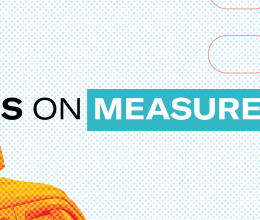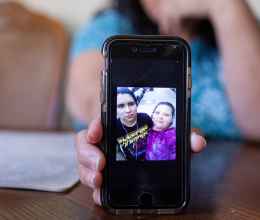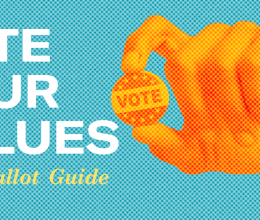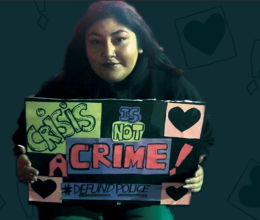
California imposes a harsh penalty on teenage welfare recipients who have children without even warning them of the penalty, claim five welfare recipients who filed suit today over California's "family cap." The policy, intended to discourage welfare recipients from having more children, denies benefits to babies born to parents already receiving aid, but only if the parents received detailed notice about the policy before becoming pregnant.
Petitioners are represented by the ACLU of Southern California, the Western Center on Law and Poverty, and the National Center for Youth Law. Clare Pastore of the Western Center, one of the attorneys for petitioners, explained that the basis of the lawsuit is the welfare department's failure to explain the rule to welfare recipients, especially teenagers. "The law says the family cap doesn't apply to any parent that wasn't warned about it ahead of time," said Pastore. "This is only fair'without advance warning, the family cap is just a senseless penalty on infants already starting out with a tough row to hoe." Pastore notes that the state provides no notice whatsoever that the family cap applies to teenagers who happen to be on welfare with their parents when they get pregnant. "The state welfare department doesn't have to apply this policy to teenage parents at all," notes attorney Martha Matthews of the National Center for Youth Law. "Applying it to them undermines their ability to finish high school and get off welfare. But if the department insists on applying the rule to teen parents, the least it must do under the law is warn them about it ahead of time."
ACLU-SC attorney Rocio Cordoba noted that California's Maximum Family Grant statute - part of a nationwide trend - is based on the mistaken belief that welfare recipients have additional children to get more aid. "The aid 'an extra $28 a week in most cases - doesn't even cover the cost of feeding, clothing and housing the new child," said Cordoba. "It's a myth that the welfare system 'rewards' women for having more children; the cold hard reality that the system punishes them for doing so. Denying subsistence benefits to these babies without even warning the parents in advance is irresponsible at best, cruel at worst."
The case, Nickols v. Saenz, was filed in San Francisco Superior Court today. The recipients ask the Court to enjoin the denial of aid to newborns unless and until proper, detailed notice is provided to all affected parents, including teenagers.





